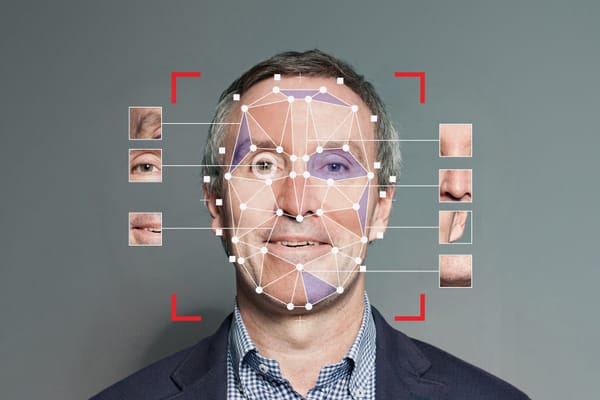Facebook moves to dismiss the FTC
With the breakup effort in full swing, Facebook fires back at the antitrust case


Today let’s talk about Facebook’s response to the government lawsuits seeking to break it up.
I.
In December, the Federal Trade Commission voted 3-2 to sue Facebook for illegally maintaining a monopoly in social networking. The lawsuit, which was accompanied by a separate suit joined by 49 US attorneys general, alleges that Facebook used acquisitions and software restrictions on developers to prevent competitors from succeeding.
The government’s case appeared shaky from the start, I wrote at the time. Its allegation that Facebook owns a monopoly in advertising-supported social networking felt overly narrow and blinkered; the case does not even mention the existence of TikTok. And its suggestion that Facebook should have done more to share data with third-party developers seemingly runs counter to the FTC’s own privacy enforcement actions — in 2019 the agency fined Facebook $5 billion for sharing too much data with developers.
At the same time, the case contains numerous incriminating emails suggesting that Facebook executives acted knowingly to reduce competition by making acquisitions including Instagram and WhatsApp. And the states’ suit in particular articulated a compelling theory of harm: that Facebook’s privacy policies worsened as competition decreased, making life worse for the average consumer. This is important because recent antitrust law has focused on cases that have caused prices to rise for consumers; companies like Facebook (and Google, and Amazon) have escaped scrutiny until now in large part because they offer their services for free.
It’s against that backdrop that I read Facebook’s response to the government, which it filed in court on Wednesday. Here’s Brett Kendall in the Wall Street Journal:
Facebook on Wednesday asked a federal judge to dismiss antitrust lawsuits by the Federal Trade Commission and state attorneys general, arguing that government enforcers have no valid basis for alleging the social media giant is suppressing competition.
The FTC “utterly ignores the reality of the dynamic, intensely competitive high-tech industry in which Facebook operates,” the company said in seeking to dismiss the commission’s case. In a second motion, Facebook argued the states’ case “does not and cannot assert that their citizens paid higher prices, that output was reduced, or that any objective measure of quality declined as a result of Facebook’s challenged actions.”
A motion like this is on one hand totally expected — if you’re Facebook, why not try to get this case thrown out as soon as possible — and on the other hand unlikely to succeed. No matter how wobbly the government's case against Facebook appears from Silicon Valley, it is the product of years of investigation. I imagine a judge would be inclined to at least let the government make its case at trial, but we’ll see.
At the same time, Google — which is facing a similar set of US antitrust lawsuits — declined to filed such a motion when presented with the opportunity last year. So why does Facebook think its Hail Mary has a better chance of success?
The company laid out its arguments in a blog post today. As expected, it complains about the government’s tortured efforts to define a market small enough for Facebook to credibly monopolize. It complains that the government cannot specify what exclusionary things it did in the wake of purchasing Instagram or WhatsApp, or restricting access to its data, that actually broke the law. And it raises various questions of standing and timing that I won’t try to assess here.
In response, the government dismissed these arguments, though not in any great level of detail.
“Facebook is wrong on the law and wrong on our complaint,” New York Attorney General Letitia James, who is leading the states’ case, told The Verge. “We are confident in our case, which is why almost every state in this nation has joined our bipartisan lawsuit to end Facebook’s illegal conduct. We will continue to stand up for the millions of consumers and many small businesses that have been harmed by Facebook’s unlawful behavior.”
II.
Is there a better case to be made against Facebook than the antitrust complaints that actually got filed?
I wondered that while re-reading this great 2018 David Streifeld profile of Lina Khan, who President Biden will reportedly nominate to the FTC. Kahn helped inspire the current antitrust moment with a widely read paper, “Amazon’s Antitrust Paradox,” which helped to move the discussion of competition issues away from a decades-long focus on price increases.
“We’re finally beginning to examine how antitrust laws, which were rooted in deep suspicion of concentrated private power, now often promote it,” Khan told Streitfeld.
This has been a necessary and productive reversal. As more of our lives move online, we can’t help but notice all the ways in which our activities are enabled and monitored by a small handful of West Coast companies.
Facebook owns three of the most popular apps in the world; is a primary news source for billions; hosts a significant portion of global political speech; runs a large marketplace for physical goods; is building a significant consumer hardware division; and developed a cryptocurrency (now operated by a consortium) intended to power a worldwide payments network.
It is a quasi-state operating in parallel with all the other nations where it exists.
Laws that were truly rooted in a suspicion of concentrated power, I think, might have intervened earlier in this state of affairs. Regulators could have expressed more skepticism about acquisitions; crafted a national privacy law; or written standards for data portability. They could have required Facebook to offer nondiscriminatory access to parts of its infrastructure, as if it were a public utility.
None of which would have required rethinking antitrust laws that may not be suited to the purpose that regulators are now pursuing.
Perhaps existing laws will turn out to be well suited for that purpose after all. Perhaps the newly Democratic Congress will write some new ones, as they have long been promising to do.
Or perhaps, given that the consumer internet is now the most competitive it has been in the past half-decade or so, it won’t much matter either way.
I don’t think Facebook’s motion to dismiss is likely to end the government’s ambitions to rein in the company. But it does highlight the steep challenge facing the FTC in the short term. A badly written lawsuit could still succeed at trial — but first it has to make it there.
The Ratio
Today in news that could affect public perception of the big tech companies.
⬆️ Trending up: Twitter is finally testing full-sized images in tweets. The move comes after controversies related to the way that Twitter’s cropping algorithms often worked to remove people of color from image previews. (Stephen Warwick / iMore)
⬇️ Trending down: Amazon is withholding more than 10,000 books from public libraries. It is the only big publisher to adopt this practice, which is designed to boost sales of Kindle and Audible books. (Geoffrey Fowler / Washington Post)
Governing
⭐ Epic expanded its app store battles with a new lawsuit against Google in Australia. Here’s Nick Statt at The Verge:
Epic Games on Wednesday expanded its worldwide legal fight against the dominant mobile app store operators with a new legal claim against Google in Australia. The claim accuses Google of “anti-competitive conduct breaches the Australian Consumer Law” and also accuses the search giant of violating the country’s Competition and Consumer Act of 2010.
The legal claim follows a similar action against Apple in Australia filed last November, and Epic’s legal fight against app stores now spans the European Union, the UK, and the US in addition to Australia.
Apple denied an appeal from Parler to return to the App Store after finding Nazi symbols on the site. As a result, Parler laid off its iOS development team. (William Turton and Mark Gurman / Bloomberg)
Russia moved to slow down Twitter amid a rise in the platform to dissent against the Putin government. It also threatened to ban the app fully. (Tom Balmforth and Maria Kiselyova / Reuters)
Related: In trying to block Twitter, Russia accidentally blocked its own websites. Censorship is hard! (Vittoria Elliott / Rest of World)
Nation-state hacks on the United States in recent months used US servers that are not subject to oversight from the National Security Agency, revealing a vulnerability in US defenses. Attempts to expand the NSA’s purview, though, would likely inflame privacy advocates. (Dustin Volz and Robert McMillan / Wall Street Journal)
Even if Amazon workers vote to form a union in Alabama, it’s not clear that they will be able to get a contract with the company. “Amazon has fought hard to keep unions out of its U.S. operations and will have a menu of options if the vote doesn’t go its way, such as contesting the result, dragging out talks with the union, or closing the 855,000-square-foot warehouse entirely.” (Matt Day and Josh Eidelson / Bloomberg)
TikTok will warn users if it detects they are trying to post “inappropriate or unkind” comments. Facebook and Twitter have explored similar ideas. (Jon Porter / The Verge)
The founder of ZocDoc built a platform to match people who can travel to vaccination sites on short notice with sites that have expiring vaccines. Love this idea from Cyrus Massoumi; it’s called Dr. B and you can find it here. (Riley Griffin / Bloomberg)
A Black entrepreneur in Texas sued Apple alleging copyright infringement after the company introduced emoji with multiple skin tones. Katrina Parrott says she is $200,000 in debt after Apple Sherlocked her app, iDiversicons. (Reed Albergotti / Washington Post)
China’s crackdown on its most famous entrepreneur, Jack Ma, threatens to derail the ambitions of its tech industry. Founders increasingly view the country’s recent anti-monopoly regulation as an effort to remove threats to the power of President Xi Jinping and the ruling party. (Peter Elstrom and Coco Liu)
Related: China unveiled a new five-year plan calling for the country to accelerate its independence from the United States on technology development. (Paul Mozur and Steven Lee Myers / New York Times)
Industry
⭐ Roblox went public via a direct listing. Demand for the stock was high, Ari Levy and Jessica Bursztynsky report at CNBC:
Roblox, the kids gaming app that surged in popularity during the pandemic, soared in its market debut on the New York Stock Exchange on Wednesday. The company’s stock closed at $69.50 apiece, giving the company a market cap of $38.26 billion.
Related: More than 1,250 developers made at least $10,000 last year through virtual sales in their Roblox games. (Ari Levy / CNBC)
Facebook launched Instagram Lite, a 2MB Android app, in 170 countries. It’s smaller and less data-intensive than regular Instagram. But it still has Reels! (Ingrid Lunden / TechCrunch)
Facebook is developing a wristband to control virtual reality interfaces. The company is also working on haptic gloves. (Scott Stein / CNET)
Amazon has more than 800 people working on a robot for the home, codenamed “Vesta.” The Alexa-powered device is expected to use multiple cameras and a screen, and I instinctively fear it. (Eugene Kim / Insider)
NewNew is a “human stock market” that lets fans pay to vote in polls that influence the day-to-day decisions of creators. “By monetizing each aspect of their life, they can extract value from everyday interactions,” the founder of a creator economy Discord says, forcing me to contemplate all the everyday interactions I am not yet extracting value from. (Taylor Lorenz / New York Times)
Google launched a feature called Phone Hub on Chrome OS that lets you send texts from your desktop. You know, like civilized people do. (Tom Warren / The Verge)
Twitch appears to be developing a “brand safety” score for streamers. You can understand why advertisers would favor such a system, though I expect its implementation could be controversial. (Bijan Stephen / The Verge)
Apple will spend 1 billion euros on a “European Silicon Design Center” in Munich. The city is already Apple’s largest engineering hub in Europe. (Tim Hardwick / MacRumors)
TikTok now has more than 3,000 employees in Europe, up from 1,600 in September. It now plans to operate three offices in London alone. (Chris Stokel-Walker / Insider)
Those good tweets
i went thru a divorce in my mid twenties and i still stand by the fact that 6th grade is the worst year of a persons life
— shelby (@shelbytheclown) 3:36 AM ∙ Mar 9, 2021
1 MONTH PANDEMIC: i miss seeing people, going places, & other concrete stuff
— dylan morrison 🍓 (@dylan_thyme) 1:04 AM ∙ Mar 10, 2021
6 MONTHS PANDEMIC: i miss abstract things, like the specific vibe inside coffee shops
12 MONTHS PANDEMIC: my nostalgia, like the rest of me, has lost any recognizable sense of time; i miss blockbuster
asked my 5-year-old what she wanted for dinner and she said “not a burned quesadilla” bc in the summer of 2019 I overcooked one side of her quesadilla
— todd dillard (@toddedillard) 10:20 PM ∙ Mar 3, 2021
I will, for you, Taco Bell
— Anna Jayne (@ajlobster) 7:37 PM ∙ Mar 9, 2021
Talk to me
Send me tips, comments, questions, and a better Facebook antitrust case: casey@platformer.news.





